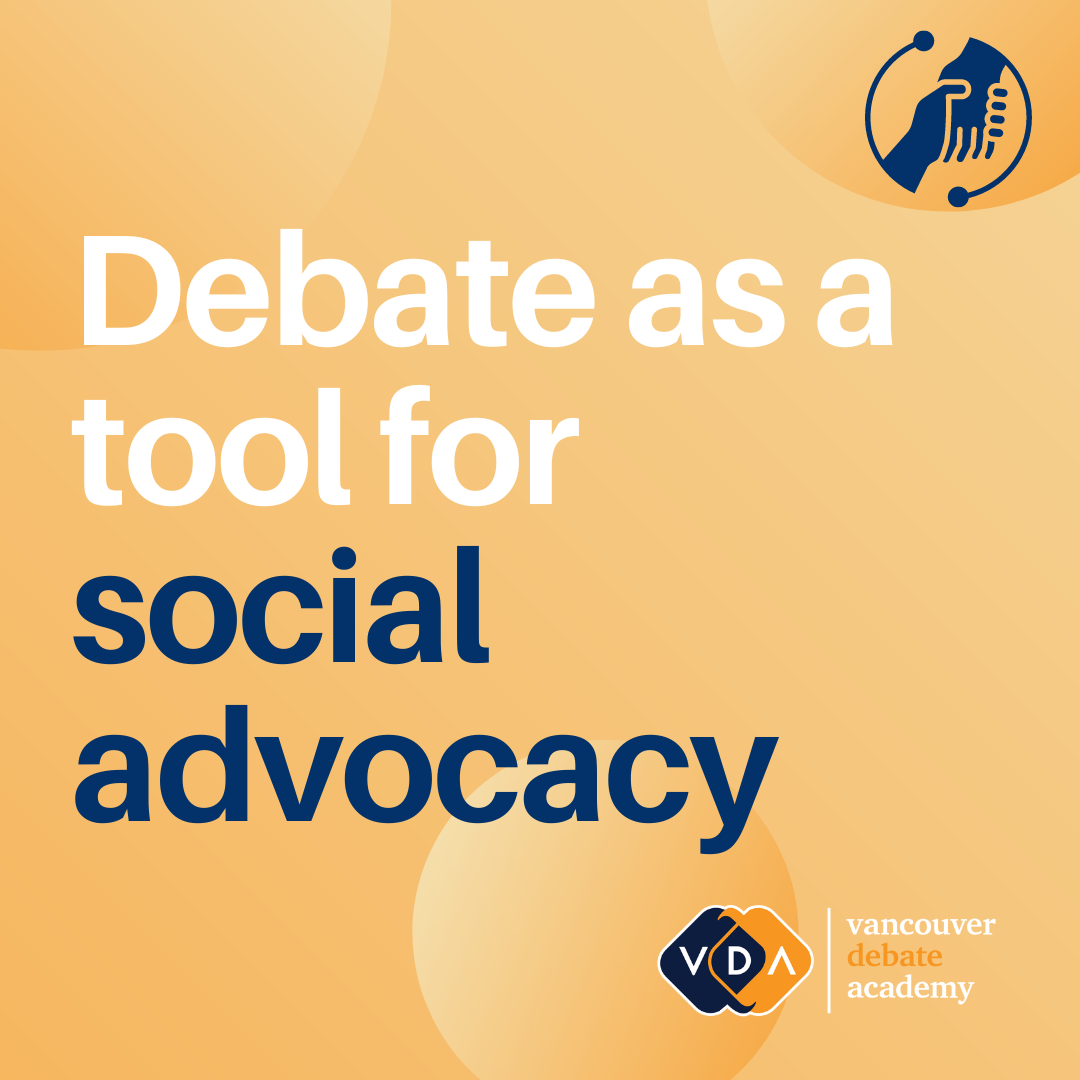Debate as a tool for social advocacy

Debates serve as a mechanism for challenging the status quo. Debate stands as a dynamic and influential tool in the realm of social advocacy, playing a pivotal role in amplifying voices and driving positive change. This structured form of discourse provides a platform for individuals to express their opinions on various social issues, making it a valuable avenue for marginalized voices that may struggle to find representation in mainstream conversations. By fostering critical thinking skills, debate enables participants to analyze complex societal problems from multiple perspectives, contributing to a deeper understanding of the intricacies involved in advocating for social causes.

ne of the key strengths of debate lies in its ability to cultivate persuasive communication skills. Through well-articulated arguments supported by evidence, debaters can effectively communicate their ideas to a broader audience, influencing public opinion and garnering support for their chosen social causes. This persuasive capacity is essential for navigating the complexities of social issues and mobilizing communities towards positive change.
Participation in debates also contributes to education and awareness. Debaters engage in thorough research to build their arguments, becoming informed advocates capable of disseminating knowledge about social issues. In turn, this informed citizenry is more likely to engage in advocacy efforts, contributing to the dissemination of accurate information and fostering a culture of understanding.
The impact of debate extends beyond the verbal realm to policy advocacy. Individuals skilled in debate can effectively engage with policymakers, advocating for legislative changes that align with their social causes. This intersection of debate and policy becomes a potent force for influencing systemic changes and addressing institutional injustices.
Debates empower marginalized groups by providing them with the skills and confidence to advocate for their rights. By fostering inclusivity and equality, debates contribute to the broader goal of creating a society where every voice is heard and respected. Additionally, the constructive dialogue that debates facilitate is essential for breaking down barriers, promoting understanding, and finding common ground among diverse groups with different perspectives.
In the broader societal context, the influence of debates often extends to media coverage. Well-executed debates can attract attention from various media outlets, amplifying the messages of social advocates and significantly increasing the reach of their advocacy efforts. This media influence becomes a catalyst for wider public engagement and awareness.

Debates will not dramatically and immediately change the course of human history. But it does a brilliant job in empowering people to join the conversation. Sometimes that’s the pivotal first step to actually bringing on consequential social changes.
Written By Coach Bishal

